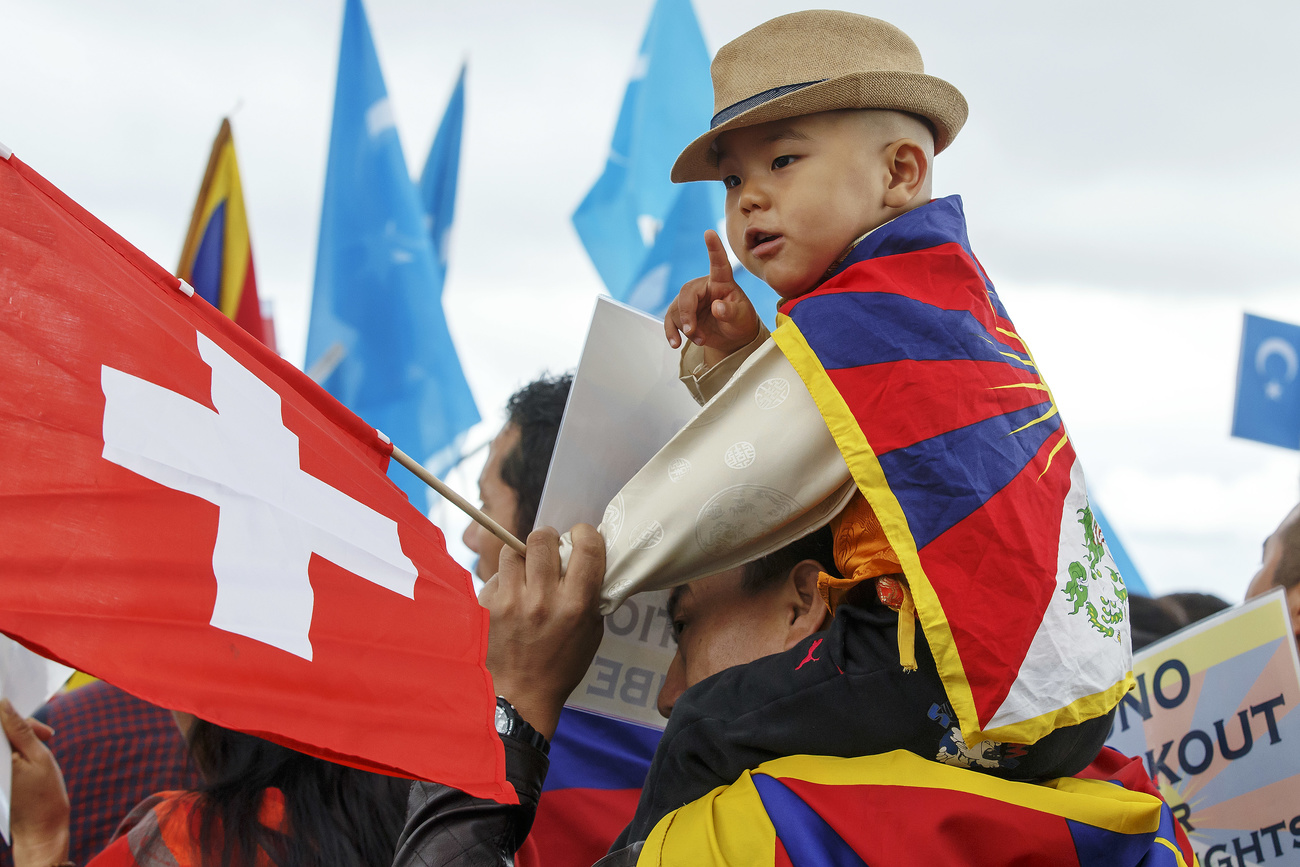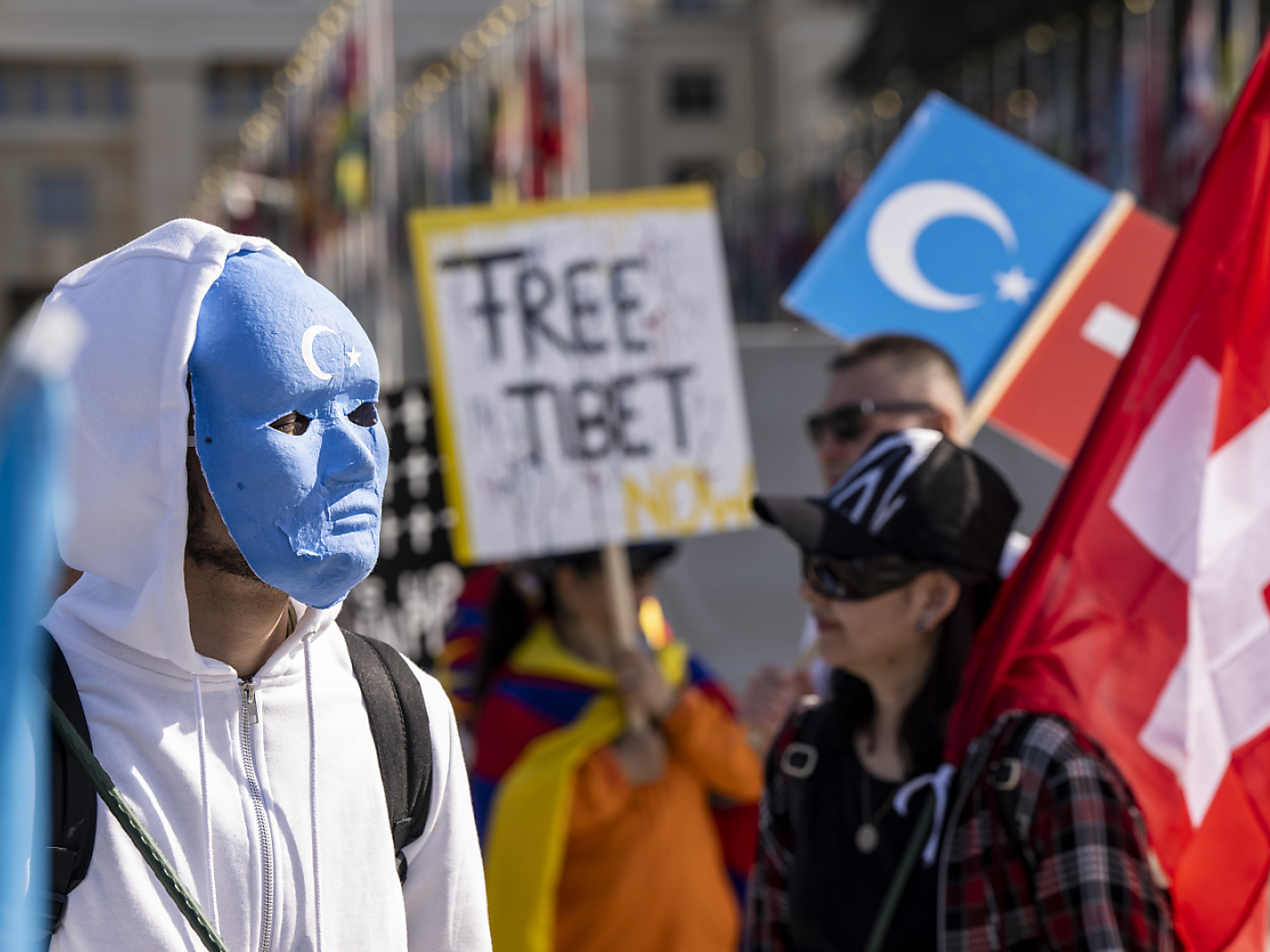
China rejects report on Tibetans and Uyghurs in Switzerland

The Chinese foreign ministry on Thursday rejected a Swiss government report suggesting that China has been cracking down on Tibetans and Uighurs living in Switzerland. It described the report’s findings as "false information".
+Get the most important news from Switzerland in your inbox
The Swiss government report published on Wednesday suspects that China is inciting Tibetans and Uighurs living in Switzerland to spy on and exert pressure on members of their community, while also engaging in other forms of “transnational repression”, such as cyber-attacks and surveillance of minority groups.
The report, based on the results of a University of Basel study commissioned by the Federal Office of Justice and the State Secretariat for Migration (SEM), responds to a parliamentary postulate.
In reply, Chinese Foreign Ministry spokesperson Guo Jiakun on Thursday said the Swiss government should “respect China’s fundamental interests and major concerns and stop spreading misinformation to the outside world”.
“Political manipulation on the issues of Tibet and Xinjiang and the denigration of China go against the facts,” Guo told a press conference.

More
Tibetans and Uyghurs in Switzerland face pressure from China
Threat to sovereignty
In the report, the Swiss government recommends examining a series of measures concerning prevention, coordination and awareness-raising. It also wants to raise awareness among all federal, cantonal and communal services likely to be involved in transnational repression.
In the view of the Federal Council, while the consequences of transnational law enforcement are not easily identifiable, they do pose a considerable long-term threat to Switzerland’s sovereignty. Digital transformation, increasingly close cooperation between authoritarian states and ever more insidious methods will amplify the phenomenon in the future.
+ Why is Switzerland refusing to follow EU sanctions on China?
Over the centuries, Tibet has alternated between independence and control by China, which claims to have “peacefully liberated” the country and provided it with infrastructure and education.
China has been accused of torture, forced labour and arbitrary detention of Uighur minorities in the western region of Xinjiang.
Beijing denies these accusations and stresses that its actions in Xinjiang have contributed to the fight against extremism.
Translated from French by DeepL/sb
This news story has been written and carefully fact-checked by an external editorial team. At SWI swissinfo.ch we select the most relevant news for an international audience and use automatic translation tools such as DeepL to translate it into English. Providing you with automatically translated news gives us the time to write more in-depth articles.
If you want to know more about how we work, have a look here, if you want to learn more about how we use technology, click here, and if you have feedback on this news story please write to english@swissinfo.ch.

In compliance with the JTI standards
More: SWI swissinfo.ch certified by the Journalism Trust Initiative






























You can find an overview of ongoing debates with our journalists here . Please join us!
If you want to start a conversation about a topic raised in this article or want to report factual errors, email us at english@swissinfo.ch.